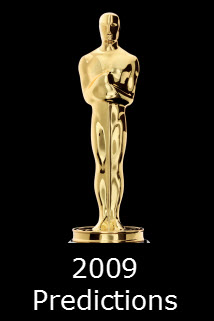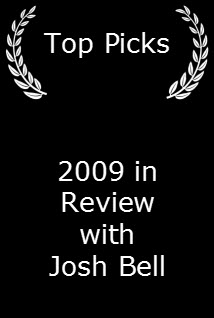The Hurt Locker (2009)


Content by Tony Macklin. Originally published on July 23, 2009 @ tonymacklin.net.
Watching The Hurt Locker is a stunning ordeal.
It takes the viewer by the scruff of the neck -- that's why the hairs on one's neck stand up. And it embeds him or her in the middle of an Explosive Ordnance Disposal squad in Baghdad.
We're in an environment that is as alienating as being in outer space. When a member of the squad approaches a potentially-cataclysmic bomb, we're with him lumbering, breathing heavily, in a weighty Kevlar suit, like a man on the moon.
Or we're in the desert on foot under fire, trying to return it against an enemy we have trouble seeing.
Or we're in a jouncing vehicle, with a toy stuffed camel and a cross dangling from the mirror, in a joyless ride through hell.
The Hurt Locker thrusts us into a world that is throbbing with anxiety, paranoia, dread, and death. There may be a bomb just down the street or a sniper on the roof. Who's a friend? Who's an enemy?
The Hurt Locker was written by Mark Boal, a former Village Voice writer, who was embedded with a bomb squad in Iraq.
The Hurt Locker is not an anti-war movie, other than realistically portraying war is anti-war. There is an occasional pointed scene such as when an officer lets an old man die, but basically the movie is about men under severe pressure in extraordinary circumstances.
These men are brave, intelligent, and competent. They're also "wound tight." We in the audience are, too.
Movies about the excursion in Iraq have had little audience appeal. Even the best of them -- Jarhead (2005) and In the Valley of Elah (2007) -- had limited audiences. The Hurt Locker should change that. It's a film careening with action and tension.
The unlikely director of this macho movie is Kathryn Bigelow. Bigelow rather clumsily directed K-19: The Widowmaker (2002) with Harrison Ford, and she seems an incompatible choice for The Hurt Locker. But she is more than equal to the task. The verisimilitude she creates is remarkable and memorable.
A few times Bigelow and Boal give into strained dramatics -- especially a scene in which the leader of the squad goes off base at night to try to get retribution. And there's one very predictable outcome when a psychologist goes on patrol -- this is from the bin of old movies.
But in toto Bigelow is true to realism. One of her great strengths as a director is her use of sound, particularly her deftness with small sound
To great effect, Bigelow employs the buzzing of flies, the dripping of water, the clank of a tire being changed, stones tinkling against a bomb casing.
The Hurt Locker begins with a quotation by Chris Hedges that, "war is a drug." And that becomes its thesis.
How do different men deal with the drug of war? They're trying to cling to their shredded humanity in the inferno of heat and bombs.
The Hurt Locker focuses on a trio of men in a bomb squad in Iraq (it was shot in Amman, Jordan), who have a little more than five weeks to finish their rotation.
A new leader -- Staff Sergeant Will James (Jeremy Renner) -- joins the unit. He is cocky and cool. There seems to be no risk he won't take. At one point he strips off his protective gear to be more comfortable as he faces death trying to dismantle a bomb.
Jeremy Renner may remind one of Steve McQueen in a Sam Fuller movie.
The other two members of the unit are Sgt. Sanborn (Anthony Mackie), who is rational and at one point wants to frag Will to end the threat of his endangering recklessness. The third is Specialist Owen Eldridge (Brian Geraghty, who also was in Jarhead), the most vulnerable of the trio.
Like Jarhead, The Hurt Locker ends with a similar return from the battlefield to a superficial, materialistic America.
But before this crash, we and the bomb go on a 2 hour and 11 minute adrenaline rush.
The Hurt Locker takes us on an incredible trip using the drug of movies.




